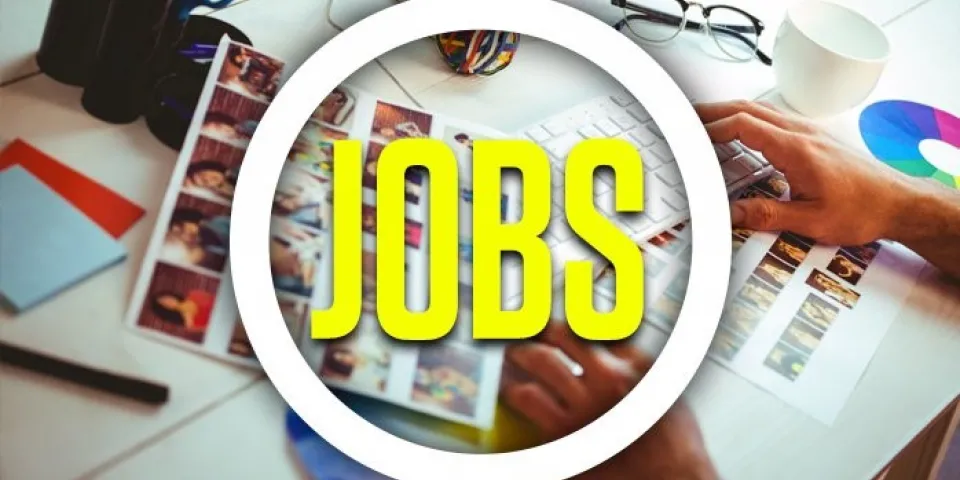Latest
Creative People: Is that job right for you?
Feb 23, 2016

Before you accept the offer, make sure that the company culture is a good fit.
So, you're a creative person, you've assembled a great design portfolio, and you're ready to hit the job-hunting trail. Want to know how to find a great job that matches your values?
This article is about you and your specific needs as an artist, and your role in an organization.
Start by examining the big picture:
1. Do the company's values align with yours? Would you feel proud to work there? Imagine yourself six months from now. You're telling a friend about your job, and how it doesn't even feel like work. You enjoy your job that much. Your friend asks about openings, and you tell her how to apply.
Tip: According to Richard Nelson Bolles, author of the best-selling book, What Color Is Your Parachute? asking friends is one of the best ways to find a job. Which technique ranks first? Doing homework on yourself, with emphasis on defining your values. Bolles' 40-plus years of research shows an 86 percent success rate among job hunters who use this technique.
2. Is the company offering products or services that you believe in? For example, if you are against smoking and forbid it in your home, would you want to work at Philip Morris?
3. How big is the company? Do you want to work for a large corporation, an agency, or a boutique? What are the benefits of each? While a global company may offer the opportunity to work on a three-month project in the Shanghai office, you might be more comfortable in a locally-based boutique.
4. Corporations have very different political structures than agencies or boutiques. The work is very different as well. For example, will you be doing B2B work or do you want to be engaged in retail design? Or are you a more experienced designer who wants a seat at the CEO's table? If you do, I recommend that you become familiar with Allen Samuels' Design Thinking approach to problem solving.
5. Next, let's consider the organizational culture. Is the company creative? Innovative? Team oriented? People oriented? Outcome oriented? What methods are used to produce new products and services? How does the business treat its employees? How does the culture align with your values?
After you've considered the big picture, think about your day-to-day life on the job. Here are six important questions:
1. How does the job align with your life? Do you need flexible hours? Can you work from home? If you're responsible for the care of others – whether children, a spouse, or elders – these issues matter. What about travel? Some people like to hit the road. Others prefer to remain at home. And take a close look at the benefits package – the insurance, retirement plan, and time off for vacations, illness, and family leave. Would it work for you and your family?
2. Is there a career path? What is your starting role and where should you aspire to be in the company in five to 10 years?
3. What kind of inspiration and training will you be getting? Is the job in a large city or is it in the country? While some people feel inspired by the hustle and bustle of the city, others want to be surrounded by nature. And does the job have training or other opportunities to be inspired, such as lectures, workshops, mentorships, or group outings?
4. Who are your direct reports and what is the interaction like on a daily basis? What types of projects will you be working on, and with whom? Make sure that you understand the hierarchical structure of the organization.
5. Who has the final sign-off on assignments? Does each assignment come with an extensive list of people who must approve it? Or is one person in charge of approvals? One scenario isn't better than the other. You need input from the right people to get your job done. This includes the person who makes the assignment – and knows what the client wants – and someone who okay’s the finished product.
6. What is the social environment like? Are there activities before, after, and during work? Would you want to be involved?
If you're a creative person, company culture is of particular importance. We need a culture that inspires us to do our best work and align it to who we are as people. We want to know that we have improved other peoples' lives with our work.
We also want to keep learning new things – and growing. So, make sure that you aren't in a dead-end job. I see too many young people jumping ship for two reasons:
1. Their value system doesn't align with their employer's.
2. They're bored at work and they're stagnating.
Work can be so much more than just making a living. That's why organizational behavior and company culture matters.
Christine Milot is an Adjunct Professor in the online Graphic Design Program at Herzing University. She has been a professional Graphic Designer for over 20 years and completed projects for clients such as Disney, Visa, Bankers Trust, Deloitte and Pepsi.
Bureau of Labor Statistics (BLS), U.S. Department of Labor, Occupational Employment and Wage Statistics 2023 / Occupational Outlook Handbook 2022. BLS estimates do not represent entry-level wages and/or salaries. Multiple factors, including prior experience, age, geography market in which you want to work and degree field, will affect career outcomes and earnings. Herzing neither represents that its graduates will earn the average salaries calculated by BLS for a particular job nor guarantees that graduation from its program will result in a job, promotion, salary increase or other career growth.
Latest
Recent Blog Posts
Subscribe to our Newsletter
Get the latest news you need to know, from study hacks to interview tips to career advancement. Have it delivered right to your inbox biweekly.








